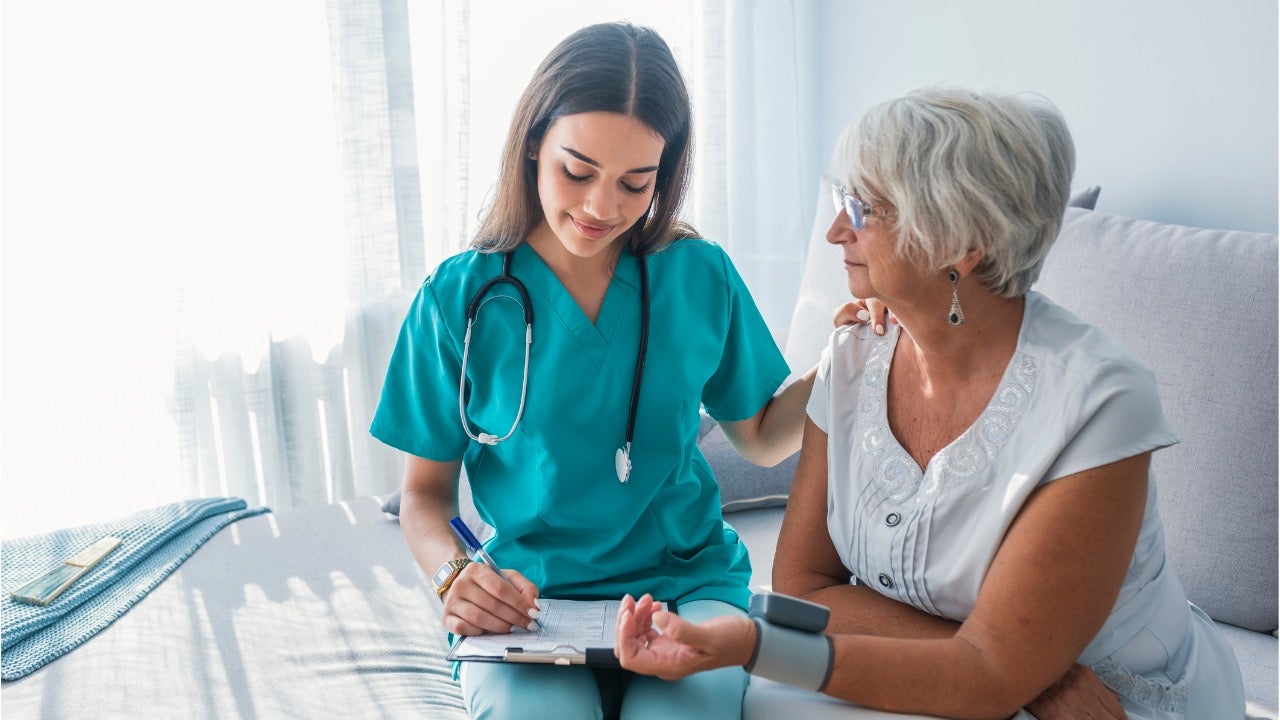This post, along with its counterpoint, was written by a member of the 2019 Aspen-Aetna Healthy Communities Fellowship, which works to amplify the voices of local leaders working to end inequities in access to health.
Many people only start seriously thinking about health insurance when their parents’ health coverage ends, or when they land that first full-time job. But I was confronted with the need for it as a six-year-old living in Mexico, when my uncle used a big, scary pocketknife to remove a cast from my broken arm.
I had been playing outside on top of a car before the injury occurred. I don’t remember too much of what happened at the health care center. But I do remember how heavy the cast was, and how it made my arm itch like crazy! When my mom told me that my uncle would help remove my cast, through tears I asked her why couldn’t I just wait to go to the doctor’s?
She said, “I don’t have the money to take you back to the doctors, and when we move to the United States, we will not have health insurance.”
That was the very first time I had ever heard the term “health insurance” and tried to understand what it was. The experience of having my cast removed at home was very traumatic. I remember thinking my uncle’s huge pocketknife may cut my arm off. But after what seemed an eternity my cast was off, and I was back to my normal self again.
Two days later, we moved to the United States, and one afternoon I was playing one of my favorite games, “King of the Bench,” where you must tussle with your friends to earn the highest position on the bench.
I did not earn a royal crown—instead, I “won” a trip to the emergency room. Again, with a broken arm—the same one! I recall crying and saying I couldn’t go because I didn’t have medical insurance and my mom was going to be mad.
I don’t remember the pain as much as being afraid we were going to have medical bills my mother couldn’t afford as a nanny with a salary of $50 a week. She had to borrow money to pay the medical expenses. I was reminded that the cast was still being paid for well after it had been removed.
Three years later, when I was nine, I remember having to skip school to go with my mother to the clinic because she couldn’t communicate with the medical staff. I also had to serve as an interpreter for friends of hers when they were going to their monthly OBGYN appointments. I often felt so torn between wanting to be there for my mother but being angry at missing school, particularly during my favorite subjects, literature/reading and science. That was my opportunity to escape my reality.
The medical staff would always ask why I wasn’t at school? I would have to tell them that my mom and her friends do not know as much English as I did. Those were proud moments for me because I felt I could be of help, even with my broken English and limited comprehension of the language. The doctors and staff would smile, but still look perplexed.
Ironically, it took winding up in the foster care system at age 14 for me to finally have access to basic medical care. I later learned that state coverage for foster children was bottom-of-the-tier. It covered very basic doctor appointments, and one annual checkup. When I was 16, I began experiencing a lot of abdominal discomfort, and after a year of my caseworker and me pleading for a specialist’s appointment, I was diagnosed with endometriosis. It took another year to get approval for surgery.
Also, without proper dental coverage, fillings for cavities weren’t an option. Three of my permanent teeth were pulled.
I could share a dozen more of these kinds of stories, but all you need to know is that they fuel my passion as a community health advocate for people with few resources or those who don’t understand medical terminology, or who have low English literacy levels. It is my dream that all underserved community members have access to proper health care, education, prevention, management and treatment.
Thirty years later, the chances of someone speaking my native language in a public health facility is much more common. However, for the average recent immigrant, their comprehension level is likely to be low. For example, my mother is about to have eye surgery, but she can’t articulate what is wrong with her eyes, or why eye surgery will be beneficial to her. Once again, I’ve found myself in the role of interpreter and medical assistant for my mother, a job I take seriously and would never shirk.
But then I think about the tens of thousands of other people facing these same circumstances. That’s why organizations like mine exist. I dream of a day when a little six-year-old girl isn’t afraid to seek treatment for a serious injury because she knows her family doesn’t have health insurance, or when a grandfather walks out of a clinic understanding whether he should take one pill twice a day or two pills twice a week. These are basic rights that should be afforded to everyone.
Maria Valenzuela is the Domestic Program Director at Esperanca, Inc. International Health Organization in Phoenix, Ariz. She is a 2019 Aspen-Aetna Healthy Communities Fellow.


